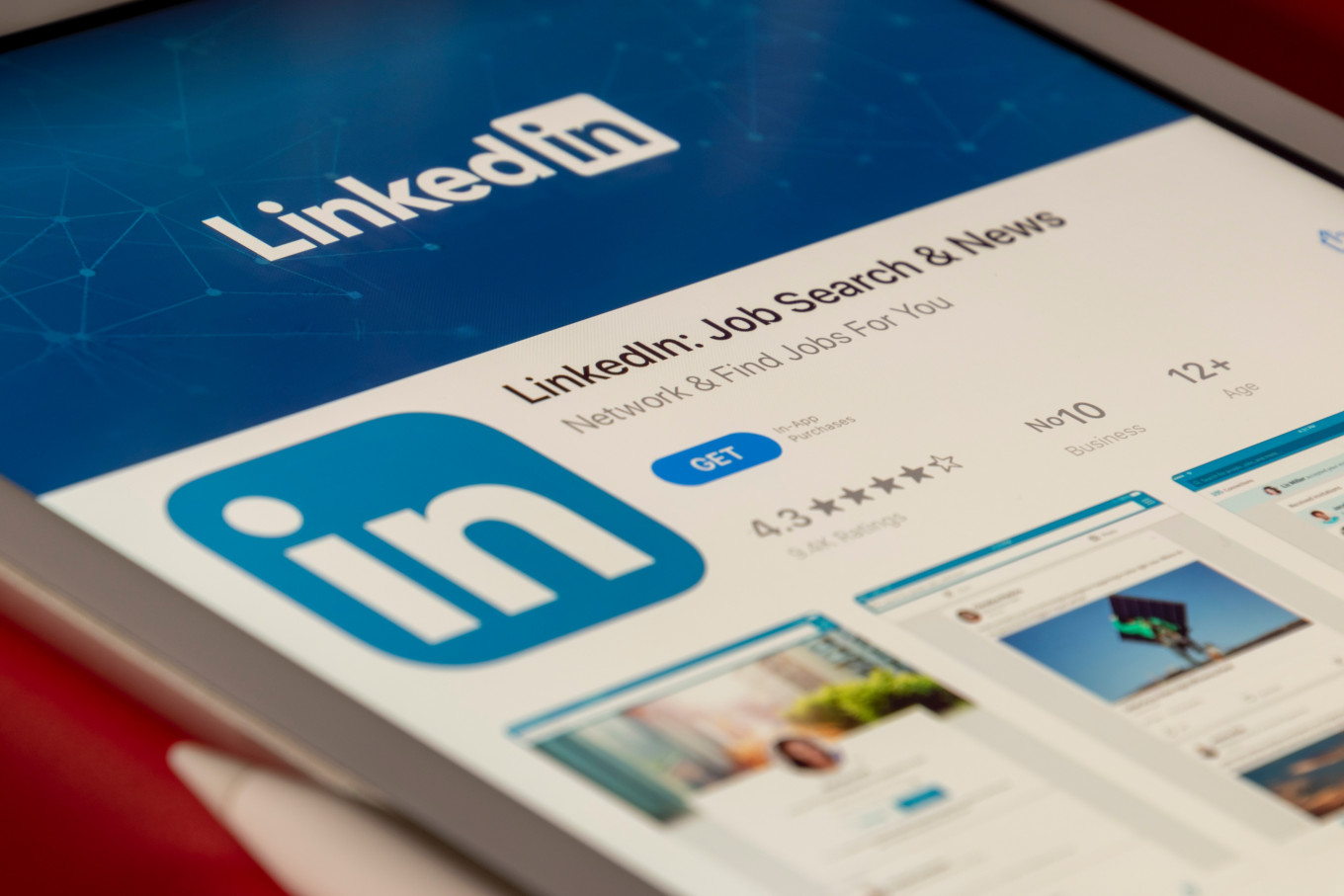Popular Reads
Top Results
Can't find what you're looking for?
View all search resultsPopular Reads
Top Results
Can't find what you're looking for?
View all search resultsLinkedIn influencers find fame with endless positivity and feel-good tales
Some call LinkedIn influencers motivators and accept their positive messages at face value, but others are not happy with what they are spreading.
Change text size
Gift Premium Articles
to Anyone
L
inkedIn might not be a traditional social media network, but influencers still hold sway over its users. Some call these people motivators and accept their positive messages at face value, but others are not happy with what they are spreading.
LinkedIn influencers have their identities and workplace for everyone to see, and for one reason or another, people flock to them. Some people follow them hoping for higher visibility or career advice. But for others, these LinkedIn influencers are merely telling romanticized workplace tales that are heavy on sentimental value but ultimately worthless to one's career, such as stories of kindly recruiters taking chances with under-qualified job seekers in need.
Ang Harry Tjahjono, human capital and general affairs manager for a major Indonesian shipping and logistics company who uses LinkedIn to recruit people and share his insights on various topics regarding employment, is one of those influencers.
"They usually approach me to review their CVs [curriculum vitae], ask for salary negotiation techniques and help overcome job anxiety. Some don't even ask anything — they just want to pour their hearts out, to be heard," said Ang.
Ang is, of course, only one among many. Take Rangga Primanto, a supply chain and logistics manager for one of Indonesia's biggest food manufacturer companies who aims to dedicate his LinkedIn presence "to help, encourage and inspire people". To satisfy that aim, he actively posts anything related to careers, such as motivations, job interview tips and personal experiences dealing with the workforce.
Another LinkedIn influencer, Riffa Sancanti, an entrepreneur and book author, as well as founder and CEO of The Lens Story, frequently has people reaching out to her to discuss career planning, problems with their bosses, office politics and more.
Although recruitment isn't her forte, some also ask her for CV and interview tips. She even wrote a book titled The Little Handbook for a Big Career, which revolves around career development, after a former teammate encouraged her.
Despite coming from different career backgrounds, the three share similar things on the platform. With many years of working experience, it might only be natural that they get to share such things. The question remains, however: Does their presence really benefit jobseekers?
Siska Margarene, a human resources psychologist based in Semarang, Central Java, weighed in.
"Building a network with these influencers could indeed benefit jobseekers as they have the chance to be recommended for jobs."
However, recommendations received over such forms of networking can't guarantee one's capabilities when entering the workforce.
"The challenge arises when recruiters assess jobseekers' potential. They need to see whether their chances of getting hired are only because of the influencers' assistance or they really are meant for the job," Siska said.
Direct approach: Results and expectations
Rangga said those who directly approached influencers were mainly "active social media users keen to learn from other people's experiences [and] looking for shortcuts to get recommendations without having to go through the lengthy process of job applications".
He thinks doing so is more effective than applying for a job through the same old method: sending a CV and other requirements then waiting and hoping for the best. He appreciates and is impressed by those who directly approach him, be it to ask for job vacancies or simply to connect.
Harry, however, believes otherwise.
"The direct approach only produces [temporary results]. These jobseekers must first be trained to get creative and given new methods to maximize LinkedIn itself. They need to get into the recruiters' insights to finally get a context of how a job application is made."
On the other hand, Siska is of the opinion that such an approach is effective enough.
"It's because everyone can give and access information very easily. The existence of LinkedIn as a platform bridging the jobseekers and potential employers ease both parties in collecting information based on their needs."
Success stories
Many jobseekers, unemployed or otherwise, turn to influencers like Harry, Siska and Rangga to help them with their careers — and most influencers do oblige.
The actual success rate may vary, but the three influencers said they had witnessed the sweet fruits of their influence and what good it has done to other people firsthand. Harry, for example, finds joy when he receives a message from people he has helped on LinkedIn telling him they have finally been offered a job.
"Knowing that my advice, suggestions and tips helped them land employment is true happiness."
It is also true for Riffa, who said that hearing success stories of how she helped people advance in their careers was what kept her going.
"Knowing that what I make has helped them to nail a job interview, solve problems with their colleagues, cope with tough times and help them secure a promotion at work, all that makes me believe that I am already on the right track."
Meanwhile, Rangga estimates that dozens of people have successfully landed a job offer after approaching him.
"Some received offers after a CV consultation with me. One of them was offered a position in a prominent Indonesian automotive company, and two even ended up working at the company I'm in," he recalled.
Toxic positivity: A matter of perspective
Many LinkedIn influencers build their brand by describing — sometimes glorifying — work in a way that is not always realistic. At times, they exaggerate or sugarcoat things, which some may regard as "toxic positivity".
"For me personally, I tell my followers both sides of the real world — the good and bad," said Rangga.
Encouraging words: Rangga Primanto intends to use his LinkedIn profile to share his personal experiences in dealing with the workforce, (Courtesy of Rangga Primanto) (Personal collection/Courtesy of Rangga Primanto)He went on to say that there were also other niche influencers out there who went the opposite way and discussed the negative aspects of work.
This is not to say that toxic positivity does not exist in LinkedIn — it does. However, Siska believes that the people who spread it don't always intend to cause harm. Sometimes, she said, they honestly don't know or are not aware that they are doing it.
"Usually, these people see it as a form of encouragement or a real example," says Siska, adding that they had different characters with various perceptions when coming across motivations.
She has also noticed that those who see influencers as role models and find their motivations to be helpful don't usually perceive their sugarcoating or exaggeration as toxic positivity. Although others might respond strongly or express their disagreement, this difference is expected — as everyone is entitled to their own opinion.
Siska believes that motivating people is a noble thing. However, when doing so, she also holds that one should consider how the receivers might decipher the message and be mindful of the choice of words and style of expression. Influencers, she said, needed to put themselves in the jobseekers' shoes in order to avoid being positively toxic.
ohmg












